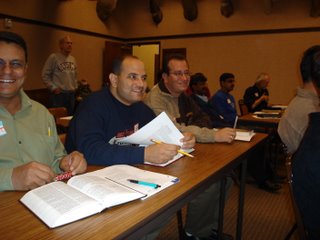
Genesis 1-3 is one of my favorite parts of Scripture. The whole creation debate tires me, but the revelation of God and human nature that we see in these pages is worth the price of buying a Bible if you don't have one. In 2:18 God says, 'It is not good that man should be alone; I will make him a helper comparable to him.' What struck me was that Adam didn't go complaining to God for what he needed. In fact, it doesn't even say that Adam knew something - or someone - was missing. God had to point that out by bringing to his attention that every bull had a cow, every rooster had a hen (verses 19-20). Then God provided what Adam needed, but he waited until he fell asleep. I've heard stories of men who wake up to discover a strange woman in bed with them having no idea how they got there, but this one is a classic!
Here's the point: God knows what we need even if we don't. Second, He will always give us exactly what we need. Third, He will do it even with no effort on our part. I love the idea of God providing for us while we sleep!
While at Keystone I've been conciously asking God to give me new insight into His word and new revelation for my life and ministry. He's faithfully answered, and I'll keep sharing a few of the things I've 'heard' here.
It's a beautiful morning.





